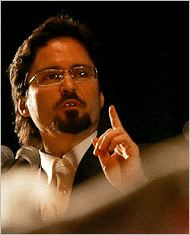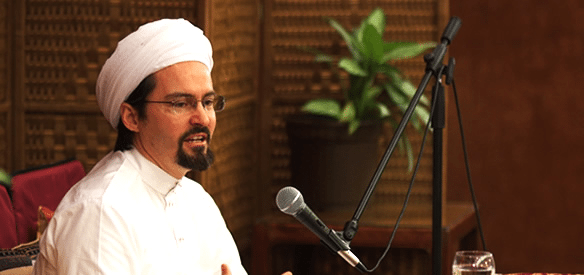Distorting Islamic tradition in our responses to the Chapel Hill shooting – Sh Hamza Yusuf

Unfortunately, some of the reaction in the Muslim community has been to see the death of the three young Muslims who were killed as somehow fortunate for them, with one imam going so far as to say in his Friday sermon that he “envied these martyrs” who were now in Paradise. This is a complete distortion of the Islamic tradition’s understanding of unjust violence and it plays into the disturbing and inaccurate narrative that Muslims love death. A perverse death cult in the tradition of the Hashashin (from where we get our English word “assassin”) has emerged today among a small minority of heterodox Muslims. In these trying times, it is important that we remember that all life is precious and that grief, as displayed and articulated by Suzanne Barakat, is not only natural but prophetic.
Our Prophet, God’s peace and blessings upon him, grieved. He cried out of sadness when his son, Ibrahim, died. He did not say, “I’m happy for him.” Instead, he said, “The eye weeps, and the heart grieves, but we say only what pleases our Lord.” This is the natural and prophetic response to tragedy. Furthermore, the year the Prophet, God’s peace and blessings upon him, lost his beloved wife, Khadijah, and his protector and uncle, Abu Talib, is known in the biographical literature as the “Year of Depression.” Feeling grief over the loss of those beloved to us is human nature.
Our Prophet, God’s peace and blessings upon him, told us not to wish for death but to ask for a long life that enables one to serve God through devotion and serve God’s creation through charity, kindness, and productive labor. This is exactly what these three young people were doing. They met their Lord in the best of states despite the terror inflicted on their young and innocent souls.
Our prayers are with their families at this difficult time. We hope that the wrongful loss of their lives becomes a catalyst for positive change on many fronts. We hope that all Americans begin to better understand the deep prejudice being perpetrated under the guise of patriotism—a prejudice ironically against patriotic American Muslim citizens who love their country and want to give back to a land that has provided them with great opportunities in education, work, and service.
“Growing up in America has been such a blessing,” Yusor Abu-Salha said in an interview months before her tragic death. “It doesn’t matter where you come from. There are so many different people from so many different places, of different backgrounds and religions—but here, we’re all one.”
We have a window of opportunity now to educate people about who these three young people were and what they were committed to in their lives: feeding and medically serving the homeless, helping refugees, displaying the best neighborly qualities, and most of all living a true and accurate life of devotion, prayer, and charity.
Sincerely, with tears and condolences,
Hamza Yusuf
President
Zaytuna College
